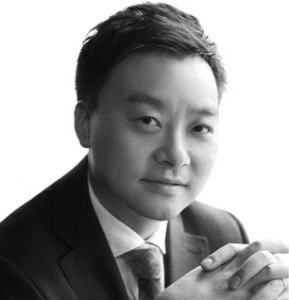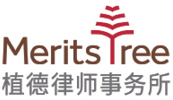According to the Report on the Development of China’s Asset Management Industry (2017), the scale of China’s asset management industry has reached RMB110 trillion (US$17.5 trillion). The boundary between different financial business such as banks, securities, insurances, trusts, funds, futures, etc., has been broken progressively, and the financial industry has entered an era of “extensive asset management”.

LONG HAITAO
植德律师事务所
合伙人
Partner
Merits & Tree Law Offices
“Extensive asset management” has become a topic that is being widely discussed in the industry. After all, what does the term mean? The definition of asset management in the Report on China’s Financial Stability (2017) and the Guiding Opinions on Regulating the Asset Management Business of Financial Institutions (Exposure Draft) (the asset management new rules) and some common definitions of extensive asset management in the market and academia all include the following four elements.
First, trustor/investor. Investors may be divided into unspecific public investors and qualified investors and, consequently, asset management may be divided into public placement and private placement. Along with the coming of the era of extensive asset management, the current situation that different asset management products have different qualification standards for investors will be changed, and a unified qualification standard is expected to be established.
Second, trustee/asset manager. Are there any qualification restrictions on asset managers? What kinds of entities are qualified to perform as asset managers? What kinds of entities may possibly become asset managers in the future? These questions are worth discussing. Some people take the view that only financial institutions may perform as asset managers. However, in the financial market, some non-financial institutions without financial permits, such as some private equity fund managers, internet enterprises, investment consulting companies, asset management companies or financial asset trading centres are carrying out “asset management business” widely by themselves, or through their co-operation with traditional financial institutions. There are some controversies concerning how to treat and regulate such “asset management business” and no consensus has been reached in this regard. It is highly likely that such “asset management business” will be brought into the scope of extensive asset management and subject to unified supervision.
Third, investment management behaviour constitutes the essence of extensive asset management. Asset management is off-balance sheet business of asset management institutions. It is in essence entrusted wealth management business on behalf of clients. Asset managers are only obliged to perform investment management, while any business involving rigid payment is beyond the obligations in entrusted asset management relationships. Asset managers do not bear investment risks, nor are they allowed to promise fully refunding the capital and fix-rated proceeds or make up for the loss with self-owned capital in any manner.
Finally, what kinds of properties may be the object of asset management? Current common definitions do not prescribe an explicit limit to it. In the financial practice, cash flow, as well as negotiable properties with clear ownership and property rights, are common object of asset management.
Based on the four elements of asset management and the status quo of mixed operation with different kinds of financial businesses in the industry in China, in the era of “extensive asset management” it is inevitable that the current governmental supervision of different financial businesses separately by the People’s Bank of China, China Securities Regulatory Commission, China Insurance Regulatory Commission and China Banking Regulatory Commission will be changed.
Along with the reform of the financial supervision system, unified standards will be established to regulate the problems in asset management business such as multi-level nesting, unclear leverage, regulatory arbitrage, rigid payment, etc. The development goal of a normal and well-organized financial system must be that asset management returns to its essence, i.e., “wealth management with entrustment on behalf of the trustor”.
FOCUSES OF SUPERVISION
The Financial Stability Development Commission of the State Council was set up in November 2017, and asset management new rules have been issued. Under the supervision of a new administrative system of extensive asset management, the author thinks the supervision must be focused on the following aspects.
First, eliminating “multi-level nesting” and “passageway business”. Along with the overlapping business operation and diversification of functions of asset managers, funds might need to go through several links such as on-balance sheet items of commercial banks, various shadow banks, etc., before ultimately reaching the fund users, which not only increases the complexity of products and therefore results in difficulty piercing into the underlying assets and concerned risks, but also elongates the capital chain and therefore results in the increase of asset internal circulation and financing costs. Eliminating “multi-level nesting” and “passageway business” is the key task of the supervision system of the extensive asset management.
Second, breaking “rigid payment”. Rigid payments will jeopardize the reflection of risk premiums or the explosion of risks, which make it impossible to distinguish good assets and bad ones. Therefore, financial resources are not able to be allocated fairly and effectively. Meanwhile, rigid payments seriously violate the essence of asset management, “wealth management with entrustment on behalf of the trustor”. Net asset value management will be an effective way to break rigid payments in the future.
Third, eliminating “leverage”. A currently worsening situation is that China’s monetary capital has transformed from “substantial arena” to “virtual arena”, circulating with no fundamental assets or transactions in the financial system. Eliminating “leverage” will effectively release monetary capital from the financial market and allow it to return to the “substantial” economy. Controlling structuration ratios and prohibiting investment with loans are the main external manifestations of eliminating “leverage”.
Finally, prohibiting “fund pool” business. The result of fund pool business is that the flow of cash and the purchased asset may not match correspondingly, and the risk may not be measured properly. In addition, liquidity risk will increase in the case of rolling issuance. Prohibiting asset managers from utilizing the raised funds by way of rolling issuance, comingled operation, separate pricing, etc., during asset management is another key task for the supervision system of extensive asset management.
(This video is only in Mandarin.)
Long Haitao is a partner at Merits & Tree Law Offices
北京市东城区东直门南大街1号
来福士中心办公楼5层 邮编: 100007
5/F, Raffles City Beijing Office Tower
No.1 Dongzhimen South Street
Dongcheng District, Beijing 100007, China
电话 Tel: +86 10 5650 0900
传真 Fax: +86 10 5650 0999
电子信箱 E-mail:
haitao.long@meritsandtree.com






















